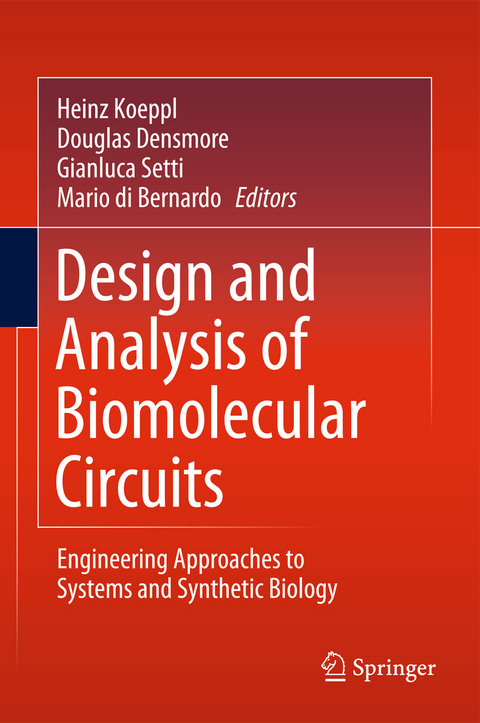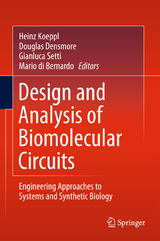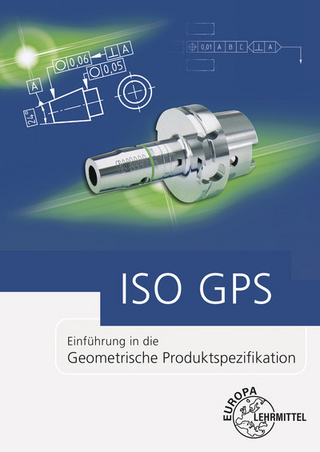Design and Analysis of Biomolecular Circuits
Engineering Approaches to Systems and Synthetic Biology
Seiten
2011
Springer-Verlag New York Inc.
978-1-4419-6765-7 (ISBN)
Springer-Verlag New York Inc.
978-1-4419-6765-7 (ISBN)
The book deals with engineering aspects of the two emerging and intertwined fields of synthetic and systems biology. Both fields stress the importance of building and characterizing small bio-molecular networks in order to synthesize incrementally and understand large complex networks inside living cells.
The book deals with engineering aspects of the two emerging and intertwined fields of synthetic and systems biology. Both fields hold promise to revolutionize the way molecular biology research is done, the way today’s drug discovery works and the way bio-engineering is done. Both fields stress the importance of building and characterizing small bio-molecular networks in order to synthesize incrementally and understand large complex networks inside living cells. Reminiscent of computer-aided design (CAD) of electronic circuits, abstraction is believed to be the key concept to achieve this goal. It allows hiding the overwhelming complexity of cellular processes by encapsulating network parts into abstract modules. This book provides a unique perspective on how concepts and methods from CAD of electronic circuits can be leveraged to overcome complexity barrier perceived in synthetic and systems biology.
The book deals with engineering aspects of the two emerging and intertwined fields of synthetic and systems biology. Both fields hold promise to revolutionize the way molecular biology research is done, the way today’s drug discovery works and the way bio-engineering is done. Both fields stress the importance of building and characterizing small bio-molecular networks in order to synthesize incrementally and understand large complex networks inside living cells. Reminiscent of computer-aided design (CAD) of electronic circuits, abstraction is believed to be the key concept to achieve this goal. It allows hiding the overwhelming complexity of cellular processes by encapsulating network parts into abstract modules. This book provides a unique perspective on how concepts and methods from CAD of electronic circuits can be leveraged to overcome complexity barrier perceived in synthetic and systems biology.
Simulation and Analysis of Bio-Molecular Circuits.- Introduction to Chemical Kinetics.- Computer Science Models to Describe Bio-Molecular Circuits.- Limitation of Current Modeling Approaches.-Abstraction in System Design; Abstraction Hierarchies and their use in CAD of Electronic Circuits.- Current efforts in standardization of Biological Parts.- Case Studies.-Biological Modules.- Enabling Technologies for Synthetic and Systems Biology.
| Zusatzinfo | XIII, 402 p. |
|---|---|
| Verlagsort | New York, NY |
| Sprache | englisch |
| Maße | 155 x 235 mm |
| Themenwelt | Informatik ► Weitere Themen ► CAD-Programme |
| Technik ► Elektrotechnik / Energietechnik | |
| Schlagworte | BioBricks • Bio-molecular circuits • ChIP-chip • Circuit Design • Circuits and Systems • DNA Synthesis • iGEM • Synthetic biology • systems biology |
| ISBN-10 | 1-4419-6765-6 / 1441967656 |
| ISBN-13 | 978-1-4419-6765-7 / 9781441967657 |
| Zustand | Neuware |
| Haben Sie eine Frage zum Produkt? |
Mehr entdecken
aus dem Bereich
aus dem Bereich
Buch | Softcover (2023)
Beuth (Verlag)
99,00 €
Einführung in die Geometrische Produktspezifikation
Buch | Softcover (2023)
Europa-Lehrmittel (Verlag)
20,70 €




